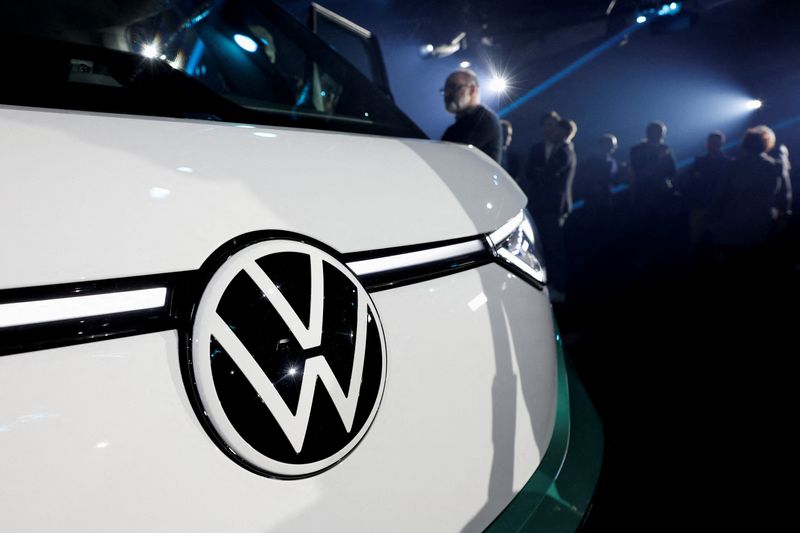Investing.com’s stocks of the week
By Victoria Waldersee
BRAUNSCHWEIG, Germany (Reuters) - A case led by Greenpeace against Volkswagen (ETR:VOWG_p) demanding that the automaker tighten its carbon reduction targets is admissible but unlikely to succeed, a German district court said on Tuesday, with a further hearing scheduled for Jan 31.
The three plaintiffs - two heads of Greenpeace Germany and environmental activist Clara Mayer - argue that the carmaker is violating their fundamental freedoms via its impact on climate change.
They are demanding that Volkswagen stops production of fossil fuel-emitting cars by 2030 and reduces carbon emissions by at least 65% from 2018 levels by then.
The lawsuits draw on a German ruling in May 2020 that the country was breaching the fundamental rights of future generations by failing to protect them from the consequences of climate change and a Dutch ruling the same month ordering oil firm Shell (LON:RDSa) to reduce its emissions.
However, the Braunschweig court said it was not clear whether the German ruling was applicable in a case between private entities.
"Fundamental rights apply directly between citizens and the state. The peculiarity here is that this is a case of a private individual against a privately acting company... the lawsuit is unlikely to succeed," said Bastian Willers, spokesperson for the Braunschweig court.
A Stuttgart district court dropped a similar case by NGO Deutsche Umwelthilfe (DUH) against Mercedes-Benz, stating there was not yet tangible proof of how the automaker's actions infringed on the rights of the plaintiffs.
It also argued that the legislature, not courts, was responsible for environmental protection.
The NGO has appealed the ruling, which Greenpeace lawyer Roda Verheyen said her clients will also do if the court dismisses their case later this month.
Another case by DUH against BMW in Munich is ongoing, with the next hearing scheduled for February 7.
